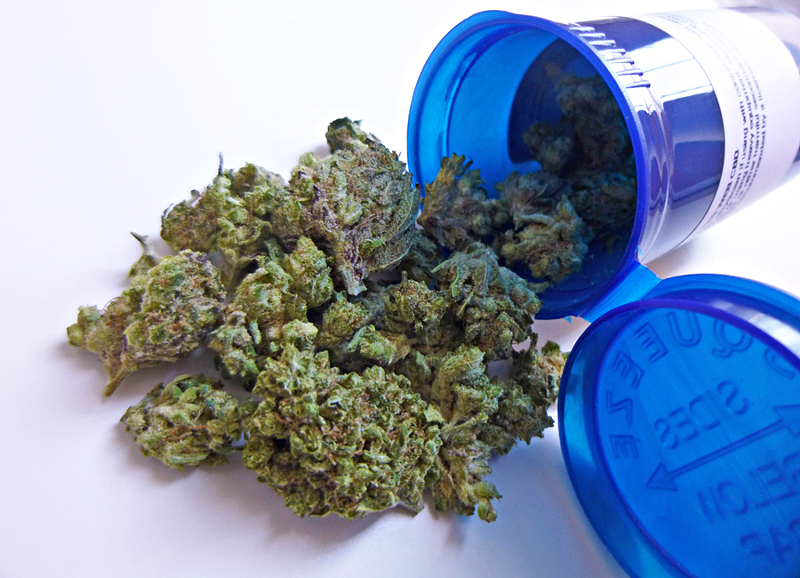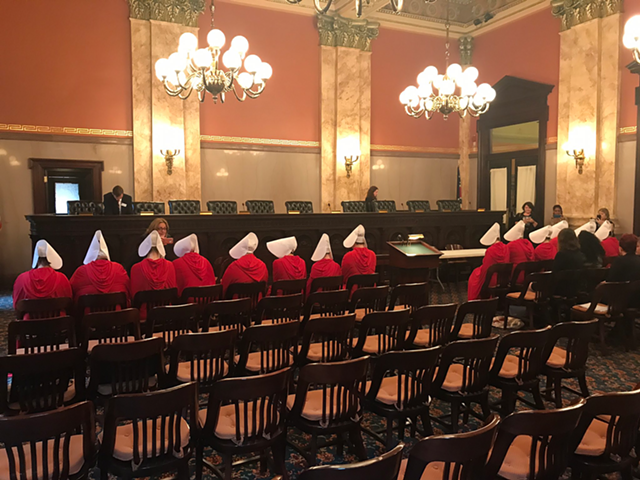He can’t get a doctor’s recommendation needed to legally obtain it, but he will tell you it’s the medicine that works the best for his daughter without the side effects caused by epilepsy medicine that pharmaceutical companies have to offer.
A law that ostensibly makes easier for parents like Nazzarine to get marijuana-based medicines passed the Ohio General Assembly and was signed by Ohio Gov. John Kasich one year ago this month. But it’s crawling through a period of ambiguity and growing pains, some say, leaving people like the Nazzarines in the lurch.
Ohio physicians can now recommend medical marijuana for 21 conditions, including cancer, PTSD, Parkinson’s disease, Tourette’s syndrome, Crohn’s disease, AIDS and epilepsy. At the moment, potential cultivators are submitting their applications to the state to be able to grow the medicinal marijuana.
But there’s a long way to go, proponents say. They’re keeping a close eye on the state’s three offices tasked to get the program running — the Department of Commerce, State of Ohio Board of Pharmacy and the State Medical Board of Ohio — to help an estimated 200,000 to 300,000 Ohioans.
Nazzarine, a Hamilton County public defender and advocate for medicinal marijuana to help children with epilepsy, says the situation is heartbreaking. All he would need to do is mail-order his daughter’s medicine from Colorado, but it’s too risky to break federal law, he says.
“Technically, you can legally possess it if you had the doctor’s recommendation, which I can’t get,” he says, noting that other parents have also had no luck getting a recommendation from a doctor for the drugs. “But if I could, you still can’t grow it, you can’t buy it, you can’t sell it, you can’t give it away. So technically a leprechaun would have to come to your house and deposit it. It’s so absurd it’s kind of funny.”
Cannabidiols, or CBDs, are non-psychoactive compounds within marijuana distinct from THC, the element that causes the drug’s signature high. Some medicinal cannabis breeders use selective breeding techniques to grow crops like Charlotte's Web with next to zero levels of THC but still containing CBDs.
Charlotte’s Web is named for Charlotte Figi, a young girl from Colorado who suffers from a rare and severe form of epilepsy called Dravet Syndrome. In desperation, her parents started giving her a CBD oil. The improvement was remarkable; her seizures went from several hundred a week to two to three a month.
Some CBD brands are sold at local head shops, but sources say they’re lower quality and lack the necessary ingredients found in the medicines.
More and more research, some conducted at the University of Cincinnati, is showing that quality CBDs offer hope to children with epilepsy. But products like Charlotte’s Web are not easily or legally available because dispensaries are not expected to open for business for a year and a half.
In place of a prescription, Ohio doctors can give recommendations to their patients to use cannabidoil or THC, state officials say. Those recommendations could give the patient a legal defense if arrested for possession — or not.
“(Doctors) are not prohibited from giving a recommendation, but this has nothing to do with the state of Ohio program, because that part of the program has not been set up yet,” says Tessie Pollock, spokesperson for the State Medical Board of Ohio. “What we are saying is, ‘OK, Ohio physicians, if you are wishing to recommend before the program is established, then we encourage you to contact your private attorney and get advice on what you should do.’ ”
The state says it will take until the fall of 2018 for Ohio’s Medical Marijuana Control Program, or House Bill 523, to become fully functional.
University of Cincinnati, which is leading the way locally against epilepsy through the UC Epilepsy Center, could play a role in making medicines like Charlotte’s Web easier to get in Ohio. But at least right now, it looks as if UC and other state schools won’t do so.
Under the law, the state will only allow public universities for the first year of the program to test the medicine for things like THC levels, for example. After that first year, private laboratories are open to apply for testing.
But the University of Cincinnati and other major state public universities recently told the The Cincinnati Enquirer they will say no to the state’s request for testing. CityBeat asked UC spokespersons several times for an official response but none was given.
“That’s the 10-dollar question I have put forward for three months,” says Rob Ryan, a Blue Ash resident and executive director of the Ohio Patient Network. “No testing, no commercial sales. I have been trying to raise awareness and alarm bells. UC is not going to do the testing. They’ve made it clear.”
Ryan says this could further delay the program, potentially for another year.
“Why not do it?” he says. “Because their lawyers are like, ‘We may lose our federal contracts.’ ”
Ironically, UC’s Epilepsy Center has researched Epidioliex for children and younger adult patients with great success. The trials were conducted in 2015 and 2016.
“Technically, the study is still ongoing, collecting long-term data,” says Dr. Michael Privitera, director of the Epilepsy Center, which is within the UC Gardner Neuroscience Institute. “Ten patients are still in the study, because that’s the only way they can get the medication.”
Privitera’s research experienced on average a 40 percent reduction in the number of monthly seizures without vomiting and potential liver damage.
What’s more, the patients appeared more cognizant, happier and, yes, more hungry, say UC researchers.
As an advocate, Nazzarine stays close to many parents with epileptic children. He says parents are going to do whatever they can to get the best medicine possible to help their child.
“I was terrified to have Charlotte’s Web mailed here,” he says. “Other parents are doing more than this. They’re growing it.”
That’s illegal under Ohio’s Medical Marijuana Control Program, as is smoking the home-grown crops.
For now, the waiting has become the hardest part of Ohio’s medicinal marijuana legalization rollout, Nazzarine says.
“I just wish the law would have been immediate.” ©






